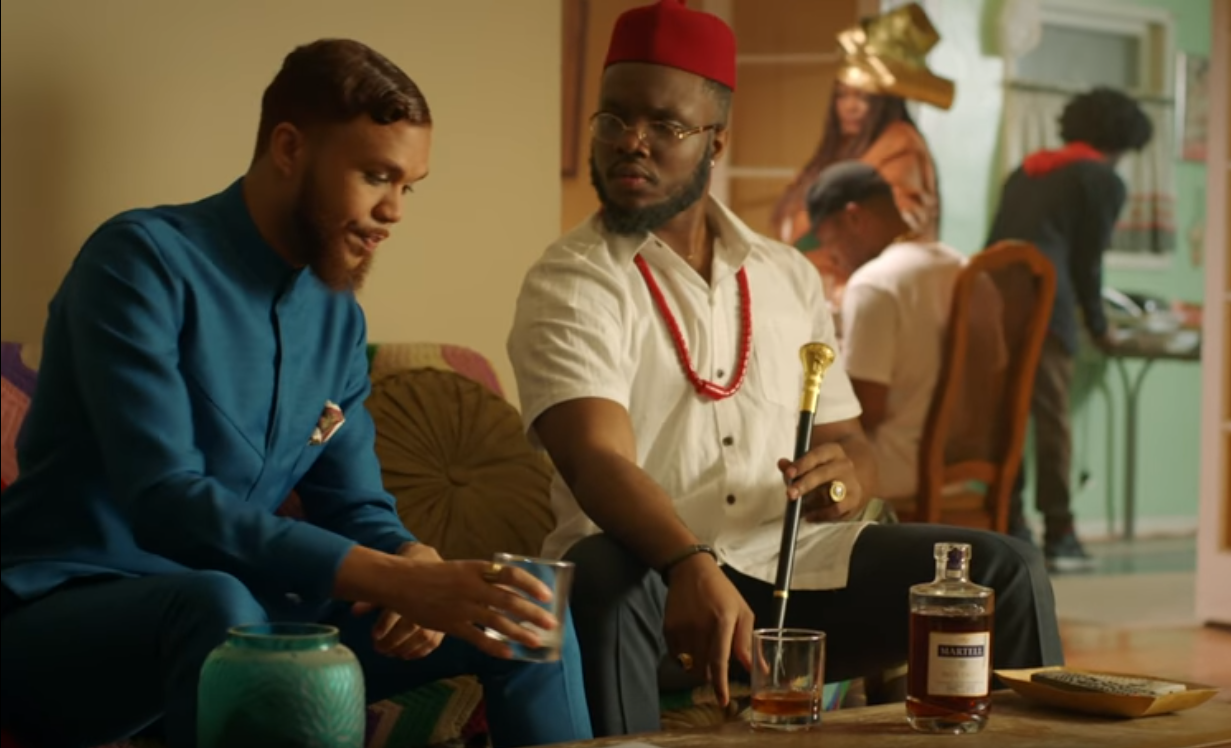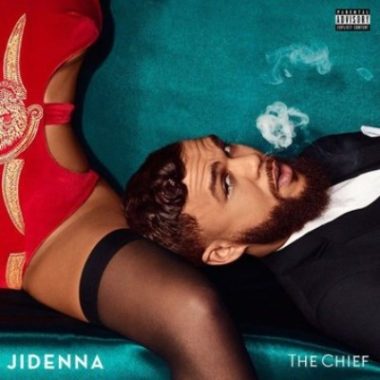In the on-going cultural exchange between Nigerian music and the USA, Jidenna has become one of the most important facilitators, if not the most important.
The rapper has already experienced solo success with the double platinum-selling “Classic man”, so he’s no longer waiting for his ‘big moment’. Having been signed to Sony since 2014/15, his success preceded the label’s great African adventure, plus there’s no escaping the fact Jidenna has a sound and an image that American society can accept easily.
But acceptance is something that Jidenna has had to earn, particularly in Nigeria. Unlike some American-Nigerian artists before him who were slow to identify with their Nigerian roots, the eternally well-manicured MC embraced his late father’s lineage early, with arms so wide that he could fit a 2011 Rick Ross and still have enough space for Anyim Pius Anyim to join in. That’s the reason why Jidenna is loved so much over here, as well.
After numerous delays, his debut album The Chief has finally arrived, and it arrived on the 7th anniversary of his dad’s death. The Chief is therefore an ode to Jidenna’s father and grandfather, both of whom were chiefs in their lifetime. The album is rich in Nigerian cultural influences – as per Igbo tradition, comedian Chief Obi plays the role of the uncle who became Jidenna’s guardian in his father’s absence. Obi’s unsolicited advice sprinkled throughout the album is akin to that know-it-all elder in the village depicted in Nollywood movies by the likes of Pete Edochie.

Jidenna and Chief Obi in the “Let Out” video (Youtube)
Obi starts his narration on “A Bull’s Tale” with some wise words for his nephew, before Jidenna takes over to expound on the dramatic story of having to travel with policemen to bury his father in Enugu. When he first told the story last year, the rapper got in hot water with the Nigerian community for portraying a negative image of the country. The talented wordsmith has a lot more time to explain what truly transpired this time as he masterfully recounts 2 difficult episodes – one, an armed robbery when he was younger and two, burying his father as an older man. He then proceeds to give an exposé on Nigerian excellence, as taught to him by his dad on the rest of the album.
The Stanford-grad was raised by a strict father who would give him a pat on the back for scoring a 98 at school but in the same breath, would ask him where he left the other 2 points. Jidenna explains how this ruthlessness turned him into a serial winner on the “2 Points” interlude, and on the boisterous “Chief Don’t Run” and “Long Live the Chief” he goes further into how the quest for perfection has shaped his overall attitude to life.
On the latter he raps –
Now they say, Jidenna why are you dressed so classic?
I don’t want my best-dressed days in a casket
Jidenna continues to pay homage to his forebears on the rest of the album, the most heartwarming moment being the final song “Bully on Earth”, where he gives his father updates on the goings-on in his life and with the family he left behind. He also takes a thinly-veiled swipe at the new US president but being that Jidenna and his boss at Wondaland records Janelle Monae are cut from the same social activist cloth – without Jidenna always wearing black and white – the jab is to to be expected. However, Donald Trump isn’t the bully Jidenna is referring to on the record, his dad is. A younger Jidenna mistook his father’s strictness and direction for bullying when he was still alive. Having realized the error in his ways, Jidenna now raps like he’s having a conversation with him posthumously –
I ‘memba in ’08, when you cried for Obama
If you were here today, you would cry for tomorrow
We won’t hail to the new king
As the politician’s mood swings
Jidenna’s disapproval for Trump’s dictatorial tendencies is a reminder that besides having a green passport, the Classic man exists in two other very separate worlds and has strong opinions about them also. He is classified as a Black American by default, with all the attendant struggles that that tag comes with, yet his one surviving parent is white and from Wisconsin, with all the privileges that that comes with. The diversity in backgrounds affords the rapper the creative license to perform a song as uncomfortable as “White Nigga” that tells a story where Jidenna reverses traditional race stereotypes and gender biases to create the perfect ‘shoe on the other foot’ moment for white people.
Jidenna delivers his socially-conscious hip-hop message from the perspective of a young black American who’s ‘woke’ enough to acknowledge the problems in his society but real enough to proffer hands-on solutions. The Chief album is therefore message-driven without being pretentious. If Jidenna had chosen to get on his soapbox, then the message of retaliation and resistance on “Helicopters” would have been hypocritical, and all the anti-slut-shaming he does on “Trampoline” would have been so confusing.
Even before this album, Jidenna was already charting a course for himself as a young voice in the African-American community and, in my estimation, didn’t have to make The Chief album. He could have made a more traditional-sounding, hip-hop project and secured his long-term future as a commercially viable artist because, with all the inferences to Nigerian culture, the risk in presenting a debut album to an America that knows little about you, let alone about your people, is immense!
But nothing about Jidenna’s music sounds like it was recorded with conformity in mind anyway. He sings classically about his lost Igbo soulmate “Adaora” when he wants to, talks in Nigerian pidgin on a pop song like “A Little Bit More”, or when he feels like, and spits fire like he grew up in Brooklyn in “Chief Don’t Run”, or when it suits him. Jidenna has been likened to Andre 3000 for his eclectic music style and distinct flow, and for a new artist traveling down a path that has truly never been taken before, there’s no greater compliment.
Listen to Jidenna’s “The Chief” album here


